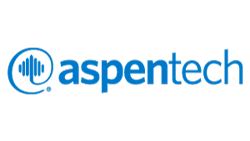OPTIMIZE 21 event to focus on ways that sustainability, industrial AI impact MRO
Paige Morse is the industry marketing director at Aspen Technology. Morse enables digital transformation progress at companies worldwide. She has significant experience with leading operating companies, including Shell, Dow, Sunoco and Clariant, covering R&D, marketing, commercial and strategy roles. Morse recently spoke with Thomas Wilk about the upcoming OPTIMIZE 21 event and the benefits MRO professionals could attain from attending the virtual conference.
PS: OPTIMIZE 21 is coming up in a few weeks. Can you tell us what attendees can expect from the event?
PM: Sure. OPTIMIZE is a global event that we typically have every two years, and it's for executives and operational leaders who are in processing industries. At this event, we focus on how we can all accelerate our digitalization journey, learn about new capabilities so we can deal with these crazy markets that we're in now, particularly the volatility and the uncertainty. And I'll tell you, our participants are really global – they come from across the world, but they're focused on process industries particularly. Areas like oil and gas, chemicals, metals and mining, pharma, those are the main areas that we work in.
What happens at this event is customers come and tell their stories. They talk about their digitalization projects, what's really working well in their business, and successes that they've had, and it's a really neat networking opportunity. As you mentioned, we're virtual this year, so it’s a different kind of feeling, but the plus is we're able to reach a much bigger audience now. Already our registration is way higher than we've ever had for in-person, so that's wonderful and it's a great opportunity really to engage.
It's a huge event as well, with about 150 speakers and several thousand people attending, and we're going to have plenary sessions, we've got panel discussions, and we've got detailed technical tracks. Some of it also will be very industry-specific – we'll have things for energy companies and another separate set just for chemical companies and for metals and mining. So that's OPTIMIZE in a nutshell.
PS: That sounds terrific. A large chunk of our audience is in the process industries, and those who aren't include people in discrete manufacturing and from utilities, who also draw from a lot of the knowledge that develops from the process industries. One of the most pressing challenges facing them across the board is to understand and address climate change by reducing their environmental impact, and I know that's going to be a prime topic at OPTIMIZE this year. We've also noticed that many in the industry are embracing these sort of long-deferred digitalization initiatives over the past COVID year. Can you talk about what you're seeing in the industry in regards to that trend, as well as the special role that AI, artificial intelligence has to play?
PM: Sure, first I'll just speak generally about digitalization, then let me dive into AI specifically. I agree with you, this last year we've refocused things a bit and there's just this incredible new urgency where we think about climate change and the environmental impact of operations. And as we look at that focus, we really are thinking a lot more about risk and just how we manage our overall operations.
Paige Morse
Digital has a really important place to play in all of this, and for those who did digital projects years ago, we did focus often on efficiency, but at that time it was more about cost: How can I get costs down to make my assets more efficient? These days, it's still about efficiency, of course, but we're now thinking more about: What about CO2 emissions? How can I reduce those? How can I reduce waste output for my operations? Or the latest thing of course, how can I introduce more recycled content into my operations?
This is a new way to think about projects. In the past, we thought about cost, so we measured success mostly in terms of dollars or euros or whatever currency, but now we're thinking a lot more about new metrics like CO2 emission reduction and waste reduction. And the plus is our digital solutions are so much better now than they were even just a few years ago, so we can really look at these new metrics, we can think about CO2 emissions and chart our progress there. We've got much better ways to gain efficiency from the assets that we have, so we're in a great spot right now to really resolve some of these really big environmental concerns and new challenges.
We're working with customers a lot on that, but one thing I want to clarify in sustainability topics, there's this immediacy which is the efficiency part that we were talking about. But the other part that's also coming out of sustainability right now is these longer-term challenges. There are two particular areas people talk about right now particularly when it comes to long-term. One is the energy transition – this idea that as a community, as a society, as an economy, we need to shift to other types of energy. That's a long-term project. It's not something that you quickly switch over, all the vehicles that we drive or all the heating we have, and certainly all the processes we run. So that's a long project. Digital is helping there as well.
The other long-term piece is something called the circular economy – the idea that when you make something, if you have any emissions or any waste, you need to reuse it and get it back into the economy. Also, when you finish with a product, think about that plastic bottle that you're using: how do I reuse it, put it back into the cycle, and not send it to the landfill? Digital solutions also help there, and what we're doing right now with customers is talking to them on all those levels – the shorter-term energy efficiency resource efficiency area, and then also the longer-term challenge of the energy transition and the circular economy – and we're going to talk about all of that at OPTIMIZE as well.
And then you talked about artificial intelligence. Digital helps with all those things that I mentioned, but AI is a very specific capability that we can apply towards our digital capability. The plus of this is that AI takes previous data, previous learning, and now helps us apply it towards the future, so it helps you come up with better solutions and often faster solutions. As I mentioned, these longer-term things like needing new fuels or new materials where we don't have emissions concerns, AI can really help with all of this. And I'll tell you, AspenTech has a lot of experience in this area – we actually use the term “industrial AI,” and what we mean by that is that it's this concept of artificial intelligence and applying it, but perfectly within the context of the process industry.
Listen to the entire interview
AspenTech has a lot of experience in process industry. We started about 40 years ago, we work closely with chemical and energy companies and now other industries as well, so we have a great understanding of what the particular challenges are. With industrial AI, that means we take all that knowledge, all the industry challenges that we know of, all of the constraints we have to work in, and then apply AI capabilities to that. By doing that, it really gives us a big opportunity to solve these large challenges, develop new energy sources, develop new products and processes for the circular economy, and that's a great opportunity for all of us right now.
PS: One of the nuts and bolts challenges that we've heard are facing our readers, especially in maintenance and reliability, is the issue of supply chain and spare parts. There was a time when Lean was the way to go, and you wanted to have just enough inventory to keep the machines going according to the schedule that you had developed, based on all the asset data you've collected. Now there are more hiccups in that process, and it wouldn't surprise me if AI was used to start solving those kinds of problems too. Will OPTIMIZE 21 be covering the supply chain side of things too?
PM: Oh, definitely. That is an extremely hot topic right now, supply chain. I think about a year ago this time, we all learned about supply chains because suddenly we couldn't get what we expected in our stores. Even just the last several weeks supply chains are back to being top of mind. Either it was the freeze in Houston that shut down so many things, or then it was that big tanker that got stuck in the Suez Canal, and we realize when we get these disruptions how interconnected we are. When you get hiccups in the supply chain, they reverberate all the way through. I mean, we're still seeing price spikes in major chemical products, for example, around the world because of what happened in February in Houston. The key though is obviously this volatile world that we're in. You can't stop those kinds of events; these things happen. What you can do though is prepare your company to be more responsive and to make better decisions when this stuff does happen, because it will.
And so we're talking to many customers about this and we'll do more of it at OPTIMIZE, but specifically about how you can use digital supply chain solutions first to get visibility across your supply chain because as I say, many people have long supply chains, several steps. You need visibility first, but then what you need is alignment across your business. Often this spreads across states or countries or regions, all of your supply chain, and (then) get alignment so you can (1) see what's going on, (2) understand your constraints and your economic situation, and (3) make a better business decision to respond.
So many companies right now are eager to increase their capability here, and then we've got others that have great stories where they said, I'm so glad I did this. We had a recent conversation with company Hexion, and we'll hear about them at OPTIMIZE as well, where they talk about their great agile capability that they have now for sales and operations execution, all because of the digital capability they built-in.
PS: Yeah, it's amazing the difference that something as small as a set screw can make. If those get held up in the supply chain, the additional downtime they can generate from that up to larger and more complex assets like high-efficiency motors (is considerable).
PM: Yes, exactly. It's equipment driven, but then, of course, it's raw material as well. So all of those things. And if you can get visibility, and understand the economics, then you can ultimately make a better business decision. And that's really what we're after here.
PS: I was looking through the agenda for the event too, looking forward trying to pick out some of the sessions I wanted to make sure not to miss. And I noticed that there are some presentations that focus on areas that directly impact the Plant Services readership, like predictive maintenance and energy management. Could you talk a little bit about what MRO professionals can get out of attending OPTIMIZE 21, or some of those sessions that they might be interested in?
PM: Sure,we've got a huge number of sessions and we're going to talk about sustainability quite a bit, and also operational excellence, and we're going to do it at two levels. We'll have strategic conversations like in our plenary sessions, and then we'll go all the way down to operational leaders where they'll tell their specific story from their specific unit. I think the audience we have today will be interested in both aspects of it.
Let me just give you an example. We have a plenary session, it's a panel conversation called the Sustainability Imperative, this idea that every company has got to deal with this, and on this panel, we have leaders from refining and chemical companies, like Phillips 66 and SABIC, talking about their digital strategies to make sure that they've got more sustainable operations. We've got some industry perspective shared by McKinsey, and they're going to be talking about their strategy, so that's useful at the higher leadership level to kind of lay out a plan.
Then we've got very specific sessions from company and project leaders. So for example, using machine learning and AI capability to improve, say, equipment maintenance programs and operational safety. We're going to hear from Bluestar, which is a Chinese chemical company. Also IRPC, which is a refining company in Thailand, will also talk about exactly how they've used machine learning on their rotating equipment with a focus on reducing unplanned outages. So we'll hear all the specifics of how they've done this in their operations.
And in fact, we have a track of sessions that we'll run all three days of the event that are focused on asset performance management solutions, and I think a lot of the maintenance and reliability staff will be very interested in that whole session. It's about 15 different presentations that will be of good interest.
You mentioned operations as well, and earlier I talked about some supply chain needs. Well, we've got several companies coming to talk about that. So, for example, specialty chemical companies like DuPont, Hexion, Albemarle are going to talk specifically about implementations they've done in their global businesses, and how they look at say economic evaluation and think about how to make a better decision with these volatile markets. Also SABIC will talk about its sales and operations planning process, and the what-if scenarios that they do to help them optimize their business and supply chain operations.
And then, of course, last point on operations as well: advanced process control. We are applying artificial intelligence in this industrial AI concept towards improving advanced process control and making it much quicker to implement into units. There’s great value in doing that and even applying it towards batch processes as well, which is a whole new capability. So that just gives you an idea of some of the areas that we'll be talking about.


